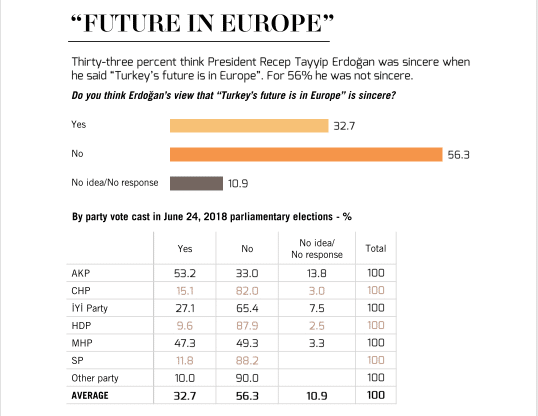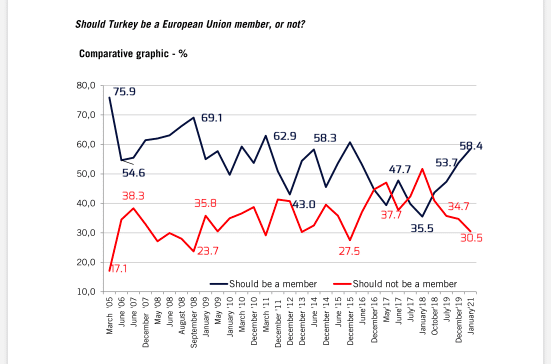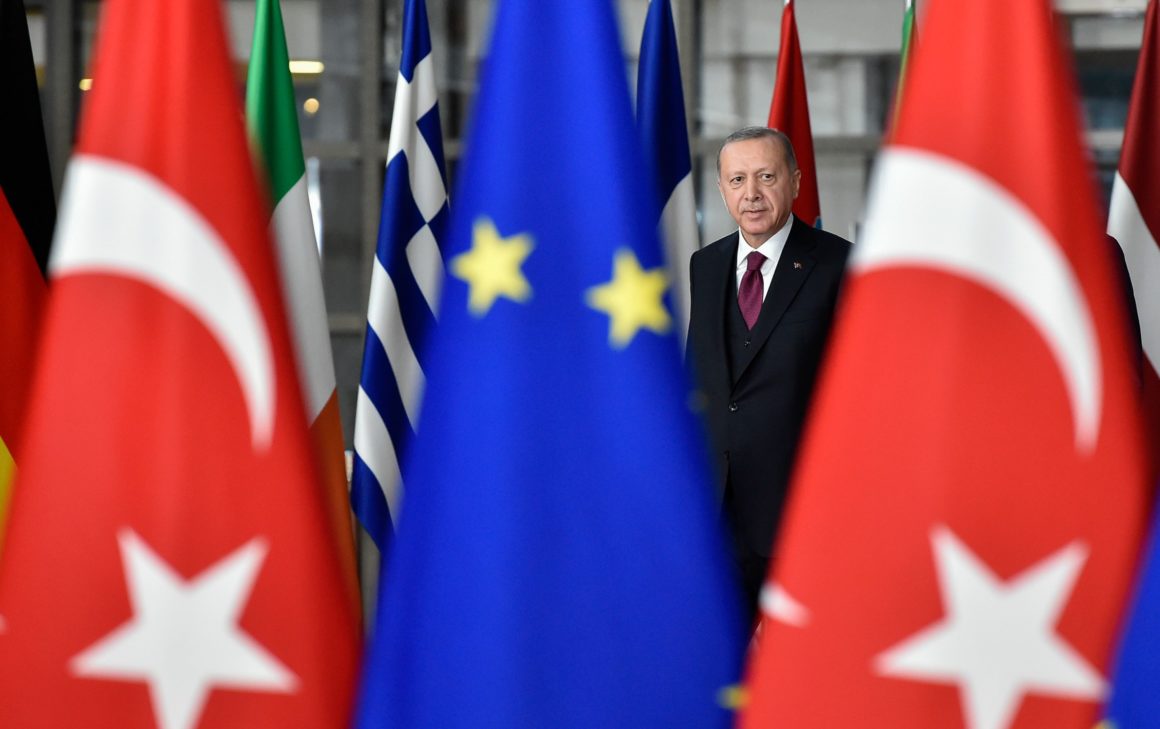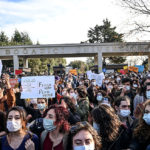President Recep Tayyip Erdoğan’s recent remarks to the ambassadors of the European Union members that “Turkey’s future is in Europe” led to the optimism of revision in foreign politics. The president had opened the debate on Nov. 21, 2020, when he said “We project Turkey’s future in Europe.” He promised a rapprochement process that ranges from Aegean Sea talks with Greece to judicial and economic reforms in the Aegean between Greece has promised a rapprochement process.
His pledge had positive repercussions in Europe. Encouraging messages came from the capital cities but they were cautious. Turkey’s biggest problem with both EU and the U.S. is mistrust and it is mutual. The recent tensions with Greece or the fact that the U.S. has seized the F-35 jets that Turkey paid for in retaliation to Ankara’s purchase of Russian S400 missiles do not replace distrust as the top problem. Neither Turkey nor the West takes steps to build trust before the other party does. Because promises are not found credible.
These trust issues may be a headache for Turkey in February and March, when it has serious matters with the U.S., EU and NATO.
Trust and sincerity issues
A new issue recently added to existing matters of mistrust.
According to the findings of research company MetroPoll, the majority of the public does not find Erdoğan’s recent remarks on the EU and reforms “sincere”.
According to “Turkey’s Pulse January 2021” report, only 32.7 percent of the participants think that Erdoğan’s remark that “Turkey’s future in Europe” represents a sincere foreign policy trend. The rate of those who said he was not sincere stands at 56.3 percent. The details of the finding are also remarkable. Among those who say they vote for Justice and Development Party (AKP), the rate of those who do not find these words of Erdoğan sincere is 33 percent. Among Nationalist Movement Party (MHP), the rate jumps to 49.3 percent.

And Turkey’s problems are not limited to the EU. U.S. President Joe Biden has called some leaders after he came to seat but he has not called Erdoğan yet. Likewise, U.S. State Secretary Antony Blinken has not called Foreign Minister Mevlüt Çavuşoğluy yet. It was Presidential Spokesperson İbrahim Kalın was the first to contact the new U.S. administration. He spoke with Biden’s National Security Advisor Jake Sullivan on Feb. 2 on the phone and the duo talked about democracy, rights and freedoms, according to a statement by the U.S. side.
Not allies, but let’s keep it well
This contradictory situation manifests itself in the responses to the MetroPoll survey.
For example, further deterioration in relations with the U.S.would harm economy, according to 66 percent of the participants It would affect Turkey’s national security negatively, according to 57.5 percent.
By contrast, 44.8 percent no longer see the U.S. as an ally. Only 40.9 percent think Turkish foreign policy should prioritize the European Union and United States. A substantial portion of 27.6 percent, on the other hand, think the priority should be given to relations with Russia and China, not the USA and the EU, even if they believe that this would endanger the economy and security.

Yet, this outlook has one more thing to say. Citizens think that the economic problems of the country go beyond the government’s discourse of “foreign powers.” Thus, the most important problems, according to citizens, are unemployment and the high cost of living. Almost half of the population, 48.9 percent, worry that the economy will get worse. Some 26.8 percent say the economy will get better. However, the perception that if the relations with the U.S. and Europe deteriorate, the economy will deteriorate is noteworthy.
Crucial February and March
Erdoğan has been pursuing an ambitious foreign policy since 2011, the Arab Spring. This is a high-risk lane, which can have high returns. He stretched the principle of not interfering with the internal affairs of the neighbors, which had been followed since the beginning of the Republic, in violation of Atatürk’s “Peace at home, peace in the world” motto. The turning point of this policy was the 15 July 2016 military coup attempt. The first military operation in Syria started just five weeks after the coup attempt. It was also a kind of challenge to the United States that Erdoğan believed was behind the Fethullah Gülenist uprising.
After this date, Erdogan started to use the military element more and more frequently in foreign policy. Use of military in Libya, Eastern Mediterranean, Cyprus and Azerbaijan, which followed the Syria operation, took Turkey back on the radar screen, despite reactions by Europe and the United States. Even the purchase of S-400 missiles from Russia against the F-35 and other sanctions threat of the U.S. was within this framework. Erdoğan is pursuing a policy of raising the level of relations by being a thorn in the heel of the U.S. and the EU.
A milestone
February and March will see a series of important developments with NATO, the U.S. and the EU. These developments will affect Turkey’s economy along with its international relations.
The fact that the issue of mutual distrust and sincerity with the West has now spread to the domestic issues shows that Erdoğan has reached a new milestone in foreign policy. But his direction is not clear yet. Because Erdoğan pledges of reforms are in line with the approach that “Turkey’s future is in Europe.” However, his claim for strengthening presidential powers with a new constitution is in the opposite direction.
It is not a coincidence that voters have doubts about foreign policy during such a process.
By: Murat Yetkin
Source: Yetkin Report



